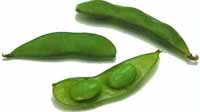Pregnancy- the time to start Obesity Prevention for your Child
In December, 2013, the New England Journal of Medicine published an important essay on the timing of preventing obesity in one's life. http://www.nejm.org/doi/full/10.1056/NEJMp1310577
The compelling point of the essay is that the situation during pregnancy and early infancy can, to a large degree, determine if the child will become obese. The article establishes that a critical opportunity to prevent obesity in your child is during your pregnancy and the months after birth.
Of course, eating habits remain central to the effort to prevent obesity, but the actual structure of fat cells in a person can be determined during that person's pre-natal period and during their early infancy.
The article notes three major influences on whether a baby will grow up to be obese:
- The weight status of the baby's mother during pregnancy.
- Rapid weight gain during 3-6 months of age.
- Whether solid foods are introduced before 4 months of age or not.
- Exposure to endocrine-active compounds during pregnancy, after birth, in the food.
The evidence strongly suggests that if the mother is obese during pregnancy, the developing child is more likely to have more and larger fat cells. If those structures move in that direction, that person may be more likely to be obese, even eating the same foods as someone who has fewer and smaller fat cells.
Obesity during pregnancy also greatly increases the chance of the mother developing the diabetes of pregnancy, or gestational diabetes. Gestational diabetes can directly impact the development of fat cells in the baby leading to greater risk for obesity for that baby when an adult.
Rapid weight gain during 3-6 months of age
Surprisingly, if an infant gains weight very rapidly during the period 3-6 months of age, that baby will grow up to have a significantly greater chance of being obese and of having heart problems. This is an issue whether the infant is nursed or formula-fed.
Whether solid foods are introduced before 4 months of age or not.
In formula-fed infants only, starting solid foods before 4 months of age increases the child's risk of being obese by age 3 years old sixfold!
Exposure to endocrine-active compounds during pregnancy, after birth, in the food.
This category of risk was not described in any detail, but there are substances, mainly in plastics, which have estrogen-like impact on people. The include specific substances such as BPA, and categories of substances such as phthalates. Exposure to such substances during pregnancy can increase the risk of obesity later in life for the developing child.
Bottom Line
What happens during pregnancy can have a powerful impact on whether your child will be at risk for developing obesity, no matter how much they eat.
We recommend that:
- Women exert any effort possible to keep their BMI in the, or at least towards, the normal range during pregnancy.
- We should resist the excitement of explosive weight gain during 3-6 months of age. Steady weight gain is quite fine.
- Solid foods should not be started until 4 months of age
- Efforts to minimize exposure to phthalate or BPA containing plastics should begin at conception and throughout the pregnancy, infancy, and childhood.
Dr. Arthur Lavin
*Disclaimer* The comments contained in this electronic source of information do not constitute and are not designed to imply that they constitute any form of individual medical advice. The information provided is purely for informational purposes only and not relevant to any person's particular medical condition or situation. If you have any medical concerns about yourself or your family please contact your physician immediately. In order to provide our patients the best uninfluenced information that science has to offer,we do not accept samples of drugs, advertising tchotchkes, money, food, or any item from outside vendors.


